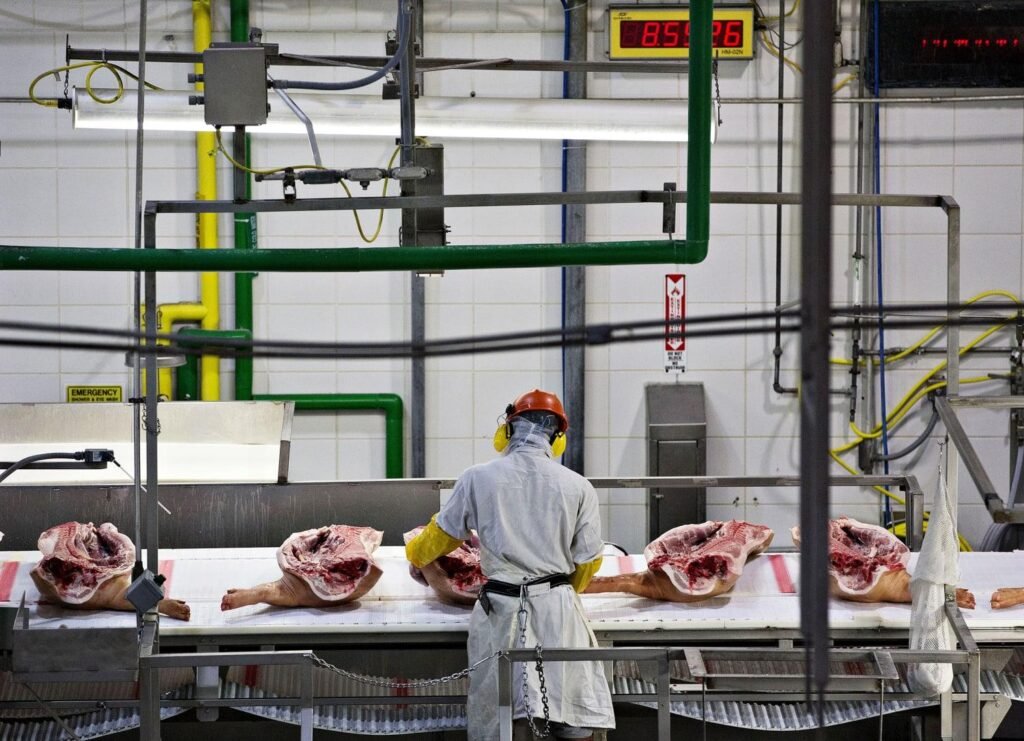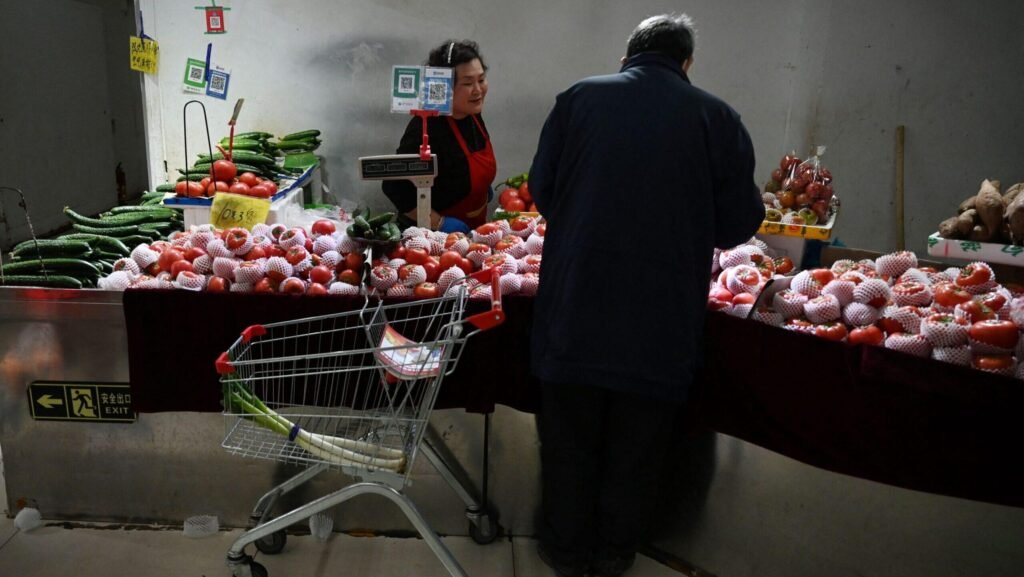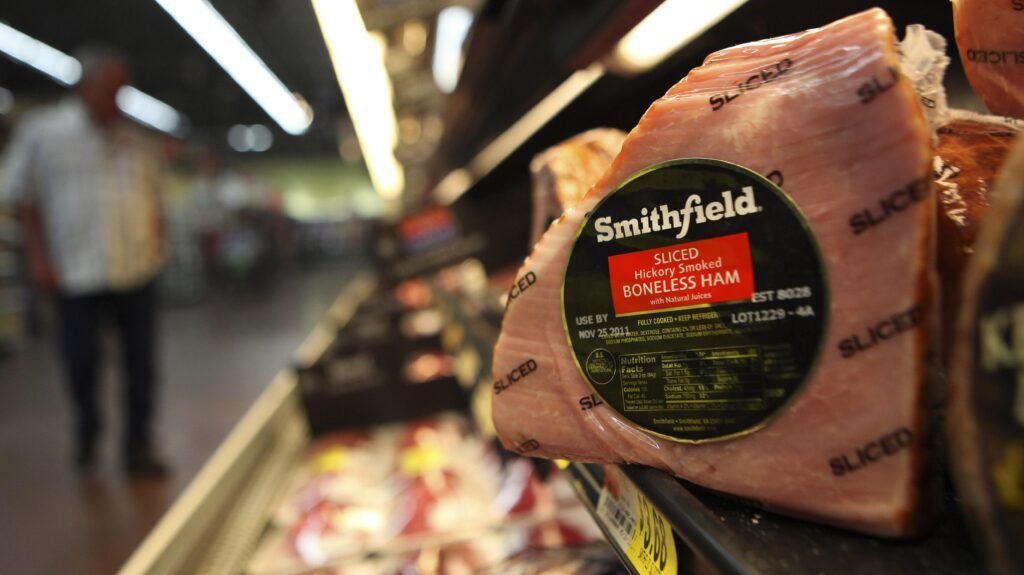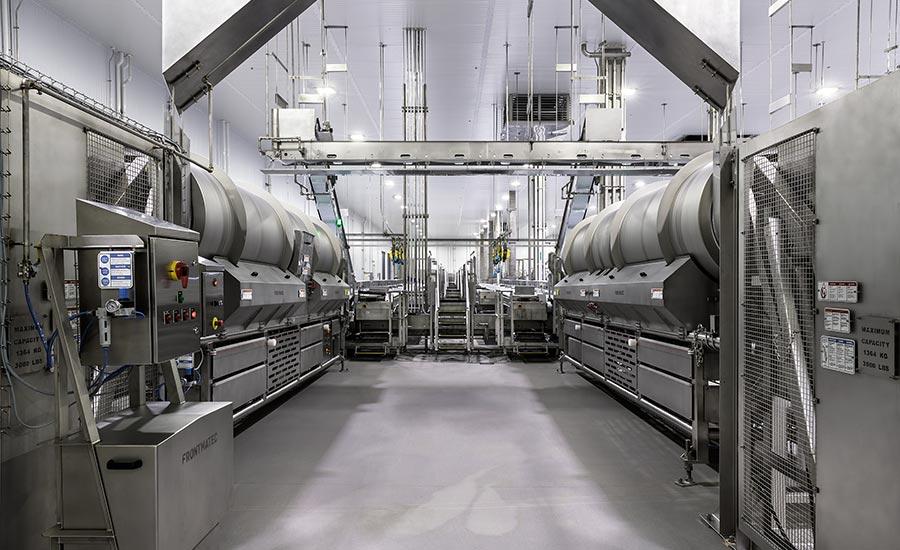Smithfield Foods, now operating beneath the auspices of the Chinese multinational WH Group, stands as America’s preeminent pork processor. Ever since its $4.7 billion acquisition by the Chinese corporation in 2013—a transaction that, by some accounts, involved heavy financing from state actors—the company has grappled with mounting scrutiny over both environmental and economic practices.
Factory farms under Smithfield control sprawl across rural landscapes. In some states, these facilities—dubbed “hog hotels” in certain circles—house tens of thousands of pigs crowded together in conditions many animal welfare advocates describe as deplorable. Livestock quarters often are packed beyond what conventional standards would allow; hogs stand shoulder-to-shoulder on metal grates over vast pools of their own waste.
Waste management at this scale breeds setbacks for adjacent communities. One issue is Smithfield’s reliance on a spraying method: liquid manure is misted onto surrounding fields to dispose of it cheaply and quickly. The procedure aerosolizes ammonia and fecal particulates, subjecting local residents to airborne irritants that can aggravate asthma or other respiratory maladies.
Tragically, regulators have documented repeated violations at various sites owned by Smithfield (often in South Dakota and Virginia), where improper waste handling led to substantial waterways contamination as well as fines—$12.6 million for Clean Water Act violations dating back several decades; more recently, penalties again for water pollution including multimillion-dollar settlements relating to negative impacts on air quality. Yet annual emissions reportedly hover around 30 million metric tons of CO₂—a figure surpassing the total yearly emissions output of entire small nations. It’s hardly surprising that nearby landowners have filed class-action lawsuits alleging diminished property values due to chronic odor and groundwater tainting.
There’s an economic dimension here too: Smithfield has been repeatedly accused—not always unjustly—of anti-competitive practices aimed at manipulating pork prices nationwide. Reports indicate that between 2022 and 2023 alone, the firm agreed to pay nearly $120 million combined in settlements related specifically to allegations it colluded with other meatpacking giants to artificially restrict pork supply; such maneuvers padded profits while consumers faced higher prices at checkout counters across America.
WH Group’s continuing purchases raise questions about national security or food system sovereignty among politicians but haven’t yet prompted any sweeping federal response; concerns loom large all the same over foreign ownership near military installations or arable land reserves vital for domestic food resilience.
Interestingly—and perhaps paradoxically—the environmental fallout appears most keenly felt not inside distant boardrooms but right outside company fences: neighbors complain incessantly about headaches from hydrogen sulfide fumes wafting off open-air waste lagoons after midnight rainfall events (a relatively common scenario given southeastern US weather). Some say groundwater tests returned nitrate levels incompatible with safe human use only years after a new facility began operation next door; others silently tolerate odors so severe they rarely open windows even midsummer because moving would require accepting a steep loss on unsellable houses widely known locally for their proximity-induced depreciation—a complex reality whose effects still reverberate through generational family lands.
Many analysts contend industrial animal agriculture inevitably creates externalities like these when seeking economies-of-scale efficiencies—but whether those externalities should be absorbed by rural populations without recourse remains sharply disputed within regulatory circles nationwide.
Occasionally overlooked amid headline discussion about pollution fines or price-fixing litigation is Smithfield’s unique duality—as supplier extraordinaire shaping grocery shelves coast-to-coast while simultaneously operating under foreign stewardship whose long-term objectives may not perfectly align with those governing public health laws stateside nor consumer welfare metrics devised by US agencies decades ago; this dissonance unsettles observers wary both of unchecked corporate clout and unclear lines between commerce policy priorities domestic versus international.
It should be noted legions employed within Smithfield facilities likely view their jobs as indispensable—even if detractors lament hazardous working conditions or allege disparate community impacts tied directly back through layers of supply chain complexity few outside industry truly understand—or care to investigate deeply beyond general suspicion toward anything perceived “foreign-owned” these days; American dinner tables feature bacon regardless who owns what field dirt where corn once grew before concrete barns dominated skylines thereabouts. That last point usually doesn’t enter activist manifestos but perhaps it ought occasionally factor into wider debate alongside quantifiable emission statistics or settlement figures bandied around courtroom newswires each fiscal quarter lately when certainly no mere observer could possibly keep pace with every development simultaneously swirling around this labyrinthine subject matter currently defining modern agribusiness controversy writ large in North Carolina hamlets—or those much farther afield than most Americans realize without further prompting anyway.





